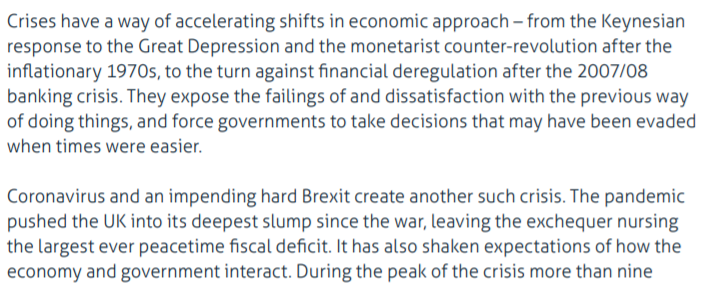
Fascinating from Philip McCann: a lifetime of study, and he found that 570 pages barely covered the complexity of the UK Regional Economic challenges.
Surprising, because quite a few people think it's pretty simple
Surprising, because quite a few people think it's pretty simple
https://twitter.com/jameskirkup/status/1359113525201948675
Also very striking: we have a governance system that automatically disincentivizes learning. A consequence of centralisation
"It's a core-periphery problem, not a cities-towns-rural problem. In the core, the cities, towns and rural areas are all doing well - in the periphery, none of them".
McCann identifies a clear flaw in how we are misdiagnosing the problem
McCann identifies a clear flaw in how we are misdiagnosing the problem
Henry Kelly of Midlands Connect supplements this point by saying the object of regional policy isn't to create a second London. Better links to the core are a key variable
Next @Alison_McGovern says we should see the answer not in terms of London giving more, in a charitable way, to the rest of the UK, but other regions like her native Merseyside being faster-growing, emerging economies
McCann again: "The answer isn't simply devolve everything immediately. It is about the transition. There has been a lot of failure (internationally); the only two countries to do this successfully are France and Japan, and they took 25 years"
• • •
Missing some Tweet in this thread? You can try to
force a refresh













